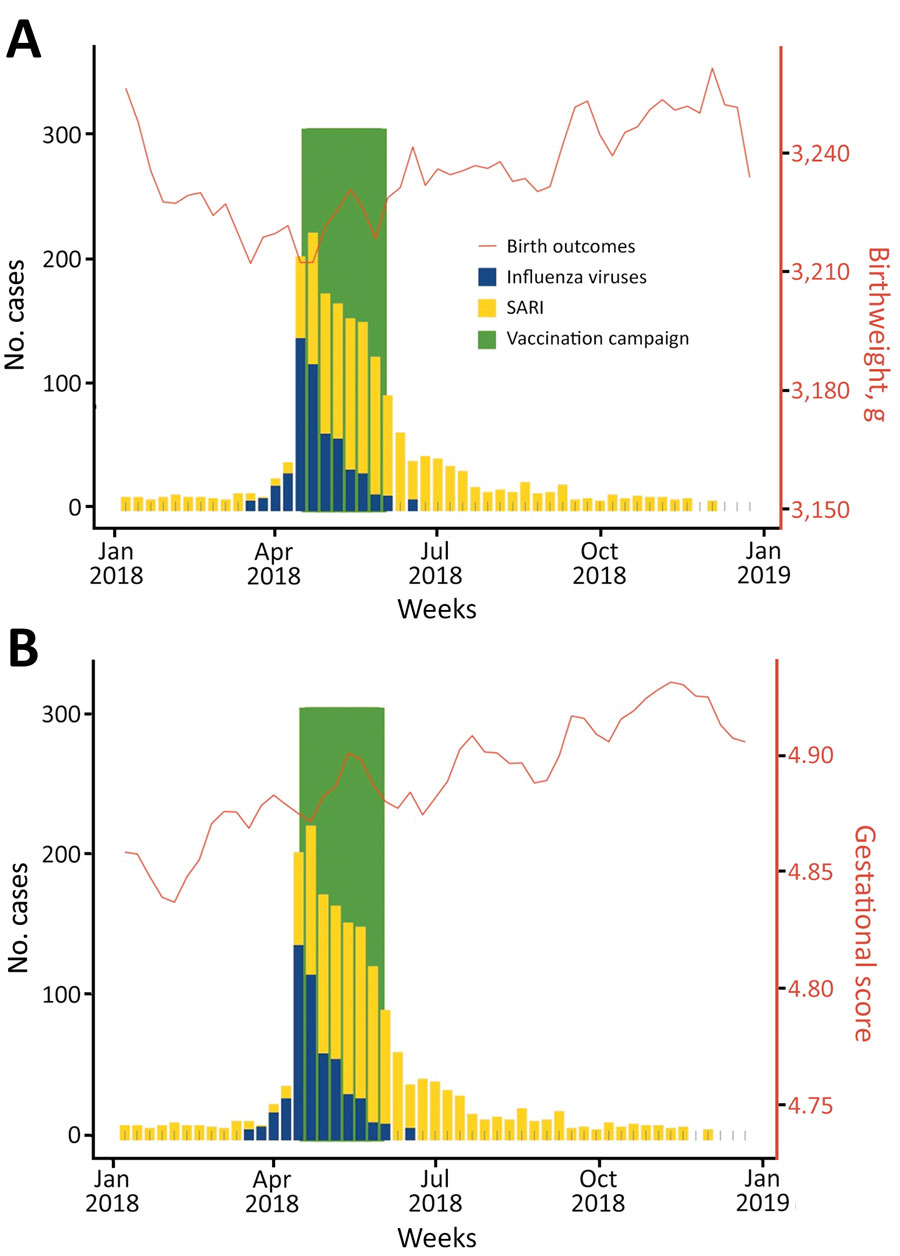Volume 27, Number 9—September 2021
Research
Perinatal Outcomes of Asynchronous Influenza Vaccination, Ceará, Brazil, 2013–2018
Figure 4

Figure 4. Associations between SARI among pregnant women and birth outcomes, Ceará, Brazil, 2018. A) By birthweight; B) by gestational score. Gestational length scored using a 1–6 scale in which 1 indicates <22 weeks, 2 indicates 22–27 weeks, 3 indicates 28–31 weeks, 4 indicates 32–36 weeks, 5 indicates 37–41 weeks, and 6 indicates >42 weeks of gestation. SARI, severe acute respiratory infection.
Page created: July 09, 2021
Page updated: August 19, 2021
Page reviewed: August 19, 2021
The conclusions, findings, and opinions expressed by authors contributing to this journal do not necessarily reflect the official position of the U.S. Department of Health and Human Services, the Public Health Service, the Centers for Disease Control and Prevention, or the authors' affiliated institutions. Use of trade names is for identification only and does not imply endorsement by any of the groups named above.